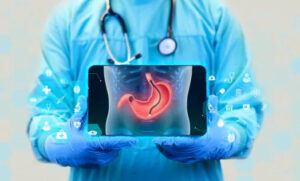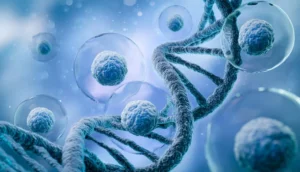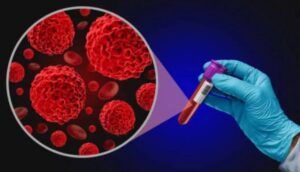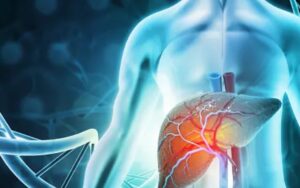
The importance of gastroscopy and cancer screening
胃镜检查(Gastroscopy)是消化系统疾病诊断的重要工具,特别是用于检测胃癌。胃癌在全球范围内是常见且致命的癌症之一,并且在早期阶段通常没有明显症状。因此,胃镜检查对于高风险人群来说是筛查和预防胃癌的关键。本文将介绍胃镜检查的用途、程序、何时需要检查以及其在癌症预防中的作用。

胃镜检查(Gastroscopy)是消化系统疾病诊断的重要工具,特别是用于检测胃癌。胃癌在全球范围内是常见且致命的癌症之一,并且在早期阶段通常没有明显症状。因此,胃镜检查对于高风险人群来说是筛查和预防胃癌的关键。本文将介绍胃镜检查的用途、程序、何时需要检查以及其在癌症预防中的作用。

Prostate examinations are a crucial aspect of men’s health, particularly for the early detection and prevention of prostate-related conditions, such as benign prostatic hyperplasia (BPH), prostatitis, and prostate cancer. Early detection through proper screening enables timely intervention and treatment. This article will introduce the main methods of prostate examination, the procedures involved, and their significance in maintaining men’s health.

Colonoscopy is a crucial method for detecting and preventing colorectal cancer, which includes both colon and rectal cancer. Colorectal cancer is one of the most common cancers worldwide, and its early symptoms are often subtle, making regular screening especially important for high-risk individuals. This article will cover the purpose, procedure, when to consider colonoscopy, and its role in colorectal cancer prevention.

Liver screening plays a crucial role in the prevention and early detection of liver cancer, a common and serious form of cancer that is one of the leading causes of cancer-related deaths worldwide. Since liver cancer often shows no symptoms in its early stages, regular liver screening is essential for identifying any abnormalities in the liver at an early stage, thereby improving treatment outcomes and survival rates. This article will cover liver screening methods related to liver cancer, target groups, and their importance in cancer detection.

Lung examinations play a vital role in detecting and preventing lung-related diseases, especially lung cancer. Lung cancer is one of the most common and deadliest cancers worldwide. Through early detection and monitoring, high-risk individuals have a better chance of receiving timely treatment, thereby improving survival rates and quality of life. This article will introduce different types of lung screening methods and explain their importance in cancer prevention and maintaining lung health.

Chemosensitivity Test is an examination method that can test the response of cancer cells to different chemotherapy drugs. With the development of personalized medicine, the application of this test in cancer treatment is receiving increasing attention. By understanding the sensitivity of cancer cells to various chemotherapy drugs, doctors can choose the most effective drugs to treat specific patients, thereby improving efficacy and reducing side effects. This article will introduce the purpose, procedure, applicable population, and role of chemotherapy sensitivity testing in cancer treatment.

Breast exams are a critical step in assessing breast health, detecting abnormalities, and detecting breast cancer early. With the continuous development of technology, existing breast examination methods can not only detect tumors early, but also help doctors develop more accurate treatment plans. The most common breast examination methods include mammography (Mammogram), breast ultrasound (Breast Ultrasound) and breast magnetic resonance imaging (Breast MRI). This article will introduce the purpose, process, advantages and disadvantages of these inspections.

Genetic testing has become an important component of cancer diagnosis, risk assessment, and personalized treatment. By analyzing an individual’s genomic profile, these tests can provide important information about the risk of developing cancer, the presence of specific cancer mutations, and the effectiveness of potential treatments. In cancer care, the two most common genetic tests are cancer risk assessment genetic testing and circulating tumor DNA testing (ctDNA testing). This article will explore these tests, their uses, benefits, and role in cancer management.

Blood tests play an important role in the detection, diagnosis and management of cancer. While blood tests alone cannot confirm a diagnosis of cancer, they provide critical information about the presence of abnormal cells, overall health, and help guide treatment decisions. From detecting tumor markers to assessing organ function and monitoring treatment progress, blood tests provide valuable insights at every stage of cancer care. This article will describe the main types of blood tests used in cancer diagnosis, as well as their advantages and limitations.

Organ function testing is an important diagnostic tool used to evaluate how well different organs in the body are functioning. For patients undergoing cancer diagnosis and treatment, these tests provide important information about the overall health and function of organs such as the liver, kidneys, heart and lungs. This information is critical for diagnosing cancer, determining its impact on organ health, developing treatment plans, and monitoring side effects during and after treatment. The following are the role, use, advantages and some considerations during the testing process of organ function testing in cancer care.